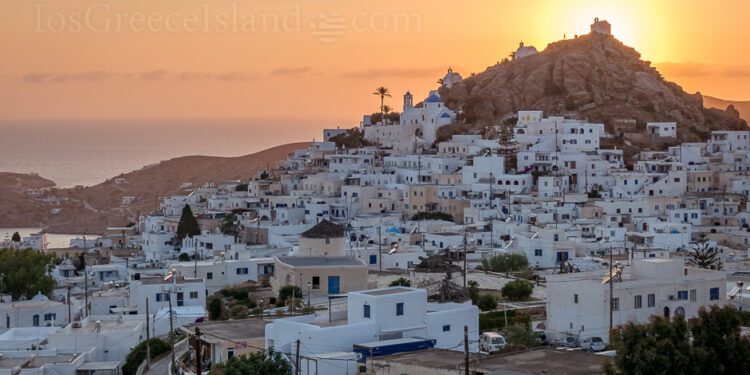The majority of property developers aim to enhance their profits by utilizing all available land. In contrast, Angelos Michalopoulos and his spouse, Vassiliki Petridou, are pursuing a different strategy. They have made the decision to develop merely 1% of their property to enable the conservation of the remaining land.
Having been raised in Greece, they possess a deep-rooted reverence for nature. Michalopoulos grew up in Athens, where his father, a landscape architect, instilled in him a passion for the environment. “Nature represents truth. Unlike people, nature is not deceitful. This is why we often find solace in its presence, as it offers us a sense of stability and grounding,” Michalopoulos shares. “Greece fosters an intrinsic love for the environment.”
Petridou echoes her husband’s sentiments regarding the natural world, drawing from a similar background. “As children, our generation in Greece spent abundant time outdoors, kicking a soccer ball in grassy fields and exploring open areas. Our childhood was profoundly connected to nature,” she reflects.
The tale of Michalopoulos and Petridou is rooted in love—for Greece and their family
The couple’s paths crossed at Cornell University in New York in 1983, and they united in marriage in 1987 during a civil ceremony before celebrating a traditional ceremony in Athens. In 1994, they welcomed triplets, followed by twins in 1998, while residing on New York City’s Upper West Side. It was during a family vacation to the Greek island of Ios that they embarked on what Michalopoulos describes as an adventure in land ownership and preservation.
He elaborates that land management can take three distinct forms. The first is to leave it in its natural state with no intervention. “Then you’ll just wait for everything to economically deteriorate until future generations recognize that this approach has failed,” he remarks.
The second method is entirely contrary—developing every inch of your land. Michalopoulos points out instances around Greece where this approach has been applied. “Take Mykonos and Santorini, which are overexploited and have embraced profit maximization as the foundation of their entire development,” he explains.
Their dedication project: Conserving 99% of their land
The final approach is the one chosen by Michalopoulos and Petridou. “Our plan is to develop a mere 1% of our territory and leave 99% preserved,” he states firmly. “We perceived this as the most viable path to ensure a legacy for our children,” he continues. On that 1%, they operate two resorts—Calilo located on the beach and Agalia positioned by the harbor.
Michalopoulos clarifies that he has not left all land in its untouched state because the income generated from the resorts is vital for maintaining the protected land and covering the associated taxes. “This endeavor must be economically sustainable. If it isn’t viable, no future generation will support this initiative,” he asserts. “We need to guarantee that not just during our own lifetimes, but also for our children and beyond, this plan, which we consider an experiment, thrives—financial independence is essential for that.”
In 2004, the couple began acquiring land, subsequently launching Agalia hotel in 2016 and Calilo resort in 2019. Currently, they own a quarter of the island of Ios and attribute their success to the strategic development of a small land percentage over an extended period.
Beyond economic sustainability, their intention with the resorts is to allow visitors to experience the island’s beauty. “This project is also a vibrant example of hospitality—sharing our beloved island with others,” Petridou states.
What sets Calilo and Agalia apart as luxury hotels
One aspect that increases the island’s significance to them is that three of their five children currently work at the resorts. They strive to sustain healthy family dynamics by distinguishing work from personal moments. “We compartmentalize this,” Michalopoulos explains. “We impose restrictions on the time allocated to discussing business, allowing us to enjoy family life outside of it.”
A key discussion point when they do talk business is the brand’s dedication to sustainability. The hotels adopt an eco-conscious strategy concerning waste management, electrical systems, and water conservation. LuxurIOS, their hospitality enterprise managing Calilo, promotes sustainable travel practices throughout Greece.
“Emphasizing sustainability is the key to addressing the overdevelopment affecting other islands,” Michalopoulos states. The websites for Calilo and LuxurIOS illuminate the comprehensive plan Michalopoulos and Petridou have set forth for preserving the island.
Michalopoulos articulates, “Individuals often capitalize on beauty.” While he understands the reasoning behind this, he stresses the importance of moderation.
“The significant lesson gleaned from the last century is that buildings are seldom destroyed,” he asserts. “We keep creating without end, which means that once erected, these structures remain, becoming part of an issue rather than part of the resolution.”
The secret of Michalopoulos and Petridou? A love for their land
Although he firmly champions his initiative of conserving land, he does not advocate that all builders should replicate his model. “Every individual carries responsibility for their own values and principles,” he asserts. “I’m not looking to impose my ideals on someone else who carries their own ethical compass. For me, this is the appropriate course of action.”
Petridou emphasizes that many large-scale developers lack a connection to the land they wish to develop. “They often overlook the implications of transforming something beautiful into a mere profit machine,” she observes. “There seems to be a disconnection from the realities of what unfolds in the island’s villages.”
There are countless reasons behind Michalopoulos and Petridou’s affection for their island. “There’s an inherent purity about it. From the moment you arrive, it feels like home,” Petridou shares. She elaborates that most hotels recreate familiar experiences. However, visiting their island promises an authenticity that welcomes everyone. “We threw open the gates for people to come. It truly is a very inviting island.”


